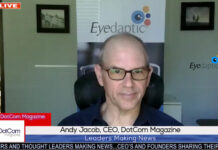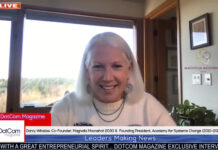The paradox of choice refers to the phenomenon where having too many options can lead to anxiety, indecision, and dissatisfaction. While choice is generally perceived as a positive aspect of modern life, an abundance of options can overwhelm individuals, making it difficult for them to make decisions and ultimately diminishing their overall satisfaction with the chosen outcome. In this comprehensive guide, we’ll explore everything you need to know about the paradox of choice, its underlying principles, psychological mechanisms, and practical implications in various aspects of life.
1. Understanding the Paradox of Choice: The paradox of choice was popularized by psychologist Barry Schwartz in his book “The Paradox of Choice: Why More Is Less.” According to Schwartz, while having options is typically seen as a sign of freedom and autonomy, too much choice can lead to decision paralysis and dissatisfaction. When faced with a multitude of options, individuals may feel overwhelmed by the decision-making process, leading to anxiety, stress, and ultimately, regret over the choices made.
2. Psychological Mechanisms: Several psychological mechanisms underlie the paradox of choice, including:
a. Decision fatigue: The cognitive load associated with evaluating multiple options can deplete mental resources, leading to decision fatigue and reduced ability to make informed choices. b. Maximization vs. satisficing: Individuals may engage in maximization, seeking to find the best possible option, or satisficing, settling for a satisfactory option. Maximizers are more likely to experience regret and dissatisfaction with their choices. c. Opportunity costs: Having more options increases the perceived opportunity costs associated with choosing one option over others, leading to heightened regret and dissatisfaction with the chosen outcome. d. Escalation of expectations: When presented with numerous options, individuals may raise their expectations for the chosen outcome, leading to greater disappointment if the outcome fails to meet these elevated expectations.
3. Practical Implications: The paradox of choice has several practical implications in various aspects of life, including:
a. Consumer behavior: In the realm of consumer psychology, the paradox of choice has significant implications for marketing, product design, and pricing strategies. Companies may benefit from offering a curated selection of options rather than overwhelming consumers with too many choices. b. Decision-making: In personal and professional decision-making, individuals can mitigate the negative effects of choice overload by limiting their options, setting clear criteria for decision-making, and focusing on what truly matters to them. c. Education: In educational settings, educators can help students overcome decision paralysis by providing guidance and structure in their academic choices, such as course selection and career planning. d. Public policy: Policymakers can address the paradox of choice by simplifying complex systems and processes, reducing bureaucracy, and providing clear information and support to individuals navigating public services and programs.
4. Strategies for Coping: To cope with the paradox of choice, individuals can employ various strategies, including:
a. Limiting options: Actively limiting the number of options considered can help reduce decision paralysis and facilitate more efficient decision-making. b. Setting priorities: Clarifying personal values and priorities can guide decision-making and help individuals focus on what truly matters to them. c. Seeking advice: Consulting with trusted friends, family members, or experts can provide valuable insights and support in decision-making processes. d. Embracing imperfection: Accepting that no option is perfect and that trade-offs are inevitable can reduce the pressure to find the “best” choice and alleviate feelings of regret and dissatisfaction.
5. Cultural and Societal Factors: The paradox of choice is influenced by cultural and societal factors, including:
a. Individualism vs. collectivism: Cultures that emphasize individualism tend to value autonomy and freedom of choice, whereas collectivist cultures may prioritize social harmony and conformity. b. Technological advances: The proliferation of digital technology and online platforms has exponentially increased the number of choices available to individuals, exacerbating the paradox of choice in the digital age. c. Economic development: As societies become more affluent and consumer-oriented, the abundance of choices in the marketplace can contribute to decision paralysis and consumer dissatisfaction.
6. Criticisms and Controversies: Despite its widespread recognition, the paradox of choice has faced criticism and controversy, including:
a. Overgeneralization: Critics argue that the paradox of choice may not apply universally and that individual differences, cultural factors, and situational contexts can moderate its effects. b. Lack of empirical support: Some research has failed to find consistent evidence for the negative effects of choice overload, leading to questions about the validity and robustness of the phenomenon. c. Ignoring benefits: Critics contend that focusing solely on the negative aspects of choice overlooks the potential benefits of autonomy, freedom, and self-expression associated with having options.
7. Application in Marketing and Business: In marketing and business, the paradox of choice has significant implications for product design, pricing strategies, and consumer behavior. Companies can apply insights from the paradox of choice to:
a. Simplify product offerings: Offering a curated selection of options can reduce decision paralysis and increase customer satisfaction. b. Provide guidance and recommendations: Providing personalized recommendations and guidance can help customers navigate complex purchasing decisions more effectively. c. Highlight value proposition: Emphasizing the unique value proposition of a product or service can help differentiate it from competitors and justify its price premium.
8. Psychological Well-being: The paradox of choice can impact psychological well-being and life satisfaction in various ways, including:
a. Regret and rumination: Experiencing regret over past decisions and ruminating on missed opportunities can undermine subjective well-being and happiness. b. Satisfaction with choices: Excessive choice can lead to lower satisfaction with chosen outcomes, as individuals may constantly second-guess their decisions and wonder if they could have made a better choice. c. Stress and anxiety: Feeling overwhelmed by choice can contribute to feelings of stress and anxiety, particularly in situations where the stakes are high or the consequences of the decision are significant.
9. Role of Social Media and Digital Technology: The proliferation of social media and digital technology has exacerbated the paradox of choice by providing individuals with access to an overwhelming array of options and information. Social media platforms, in particular, can create a sense of FOMO (fear of missing out) by constantly exposing users to curated images of others’ lives and experiences, leading to feelings of inadequacy and dissatisfaction.
10. Practical Recommendations for Individuals: To navigate the paradox of choice in everyday life, individuals can consider the following practical recommendations:
a. Practice mindfulness: Cultivating mindfulness and present-moment awareness can help individuals become more attuned to their values, preferences, and priorities, enabling more intentional decision-making. b. Embrace minimalism: Adopting a minimalist lifestyle and decluttering one’s environment can reduce decision fatigue and overwhelm by eliminating unnecessary choices and distractions. c. Focus on experiences over possessions: Prioritizing experiences over material possessions can shift the focus away from acquiring more stuff and towards meaningful interactions and activities that contribute to well-being and fulfillment. d. Practice gratitude: Cultivating gratitude for what one has can counteract feelings of dissatisfaction and envy triggered by comparison with others, fostering a sense of contentment and appreciation for life’s simple pleasures.
In conclusion, the paradox of choice highlights the complex relationship between choice, freedom, and well-being in modern society. While having options can empower individuals and enhance autonomy, an abundance of choices can also lead to decision paralysis, regret, and dissatisfaction. By understanding the underlying mechanisms of the paradox of choice and adopting practical strategies for coping, individuals can navigate decision-making more effectively and cultivate greater satisfaction and fulfillment in their lives.

















